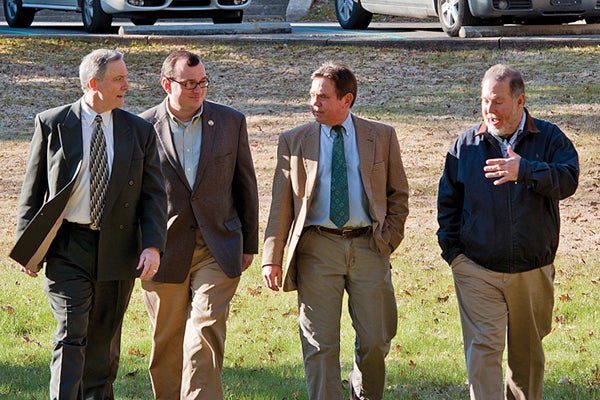Boost to UWA and Black Belt
Published 7:10 pm Friday, February 4, 2011
By Donna Cope
For The Times
LIVINGSTON – To Danny Cooper, the Alabama Power Foundation’s recent grant to the University of West Alabama (UWA) is a dream come true – and a personal victory.
Living most of his life in west Alabama, Cooper is well aware of the area’s severe need of economic development. A resident of Eutaw, he graduated in 1975 with a social sciences degree from Livingston University, which was renamed the University of West Alabama in 1995. Cooper is among some 60 UWA graduates currently working for Alabama Power, according to Human Resources.
In efforts to assist his alma mater and the entire area, Cooper championed UWA’s $15 million fundraising campaign “The University We Will Be” three years ago. He also was a major petitioner to the Alabama Power Foundation for the university grant.
“This is home to me, and before I retire, I want to help make a difference in moving the University of West Alabama forward,” said Cooper, manager of the business office for Eutaw, Livingston and York for 21 years.
“This is a rural area, and UWA is our largest college,” he said. “This foundation grant is going to make worlds of difference in helping with economic development and much needed jobs. We are going to be good stewards of this grant.”
The foundation’s gift is the catalyst for the University of West Alabama Center for Business and Economic Development Services, which is part of the College of Business. In that vein, Western Division External Affairs Manager Joseph Brown noted that UWA is located in the Black Belt, which is among the nation’s 12 poorest counties. About 30 percent of the population lives below poverty level.
“Unemployment in the Black Belt ranges between 12 and 19 percent, which is among the highest rates in the U.S.,” said Brown, who chairs Region 3 of the Workforce Development Council of Alabama in developing a regional strategic plan for local job development. “The main goal of this foundation grant is to bring desperately needed economic development opportunities to these communities in the Black Belt. By having a center that can assist and unite the great efforts already in place, this can be the piece that will help bring a major industry to this area.
The center will have a strategic plan to assist new officials in the area and help assess local economies and trends for officials, as well as provide business research and analysis for new and existing business.
He said local economic developers need specific research data when they are starting to assess a community’s development opportunities, and the goal of the center is to provide those specifics for the region. The facility will allow officials to analyze critical factors such as workforce needs, training in the area and unemployment data.
“Instead of a team having to do new research when an opportunity presents itself, over and over, the information will be readily available and industry specific,” he said.
On Jan. 3, William “Billy” McFarland Jr., formerly of the West Alabama Regional Commission, became director of the center. “It is an honor to work alongside stakeholders from the Black Belt to improve access to leadership training, economic development assistance and outreach,” McFarland said.
Dr. Ken Tucker, dean of UWA’s College of Business, believes the university is the single most important force for change and improvement in the Black Belt.
“We established the center to spearhead this comprehensive economic and community development effort to help our region,” Tucker said. “We greatly appreciate the Alabama Power Foundation’s generous gift. The benefits will be seen for years to come.”
Brown said he is excited about the grant, which is so desperately needed in that area.
“I’m really impressed with this project, and I truly appreciate the commitment of the Alabama Power Foundation.”






